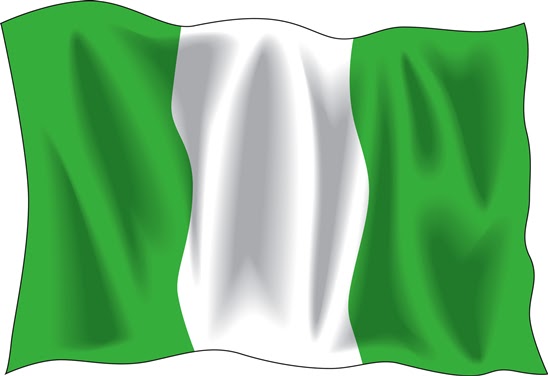John Dunn, Emeritus Professor of Political theory at King’s College, London, posits: “democracy is not synonymous with good governance.” In other words, the fancy use of the term “democracy” simply doesn’t birth the practice of accountability and fairness in democratic nations.
In his seminal book, Breaking Democracy’s Spell (2014), Dunn argues, in clear terms, why this oft praised system of government is replete with “unstable, vulnerable […] and continuing danger” in the so-called democratic countries.
The general failure to “comprehend” the concept of democracy, he states, amplifies deep “instability” in governance. His assessment holds certain truths; democracy thrives on, most times, racial/tribal divisions, malicious capitalism and widens the gap between the haves and the have-nots. Yet, many third world countries exercise this borrowed system of government without proper analysis, and often times, espouse the monstrous characteristics of democracy.
This is not to suggest that democracy is not laden with its advantages but the system as used in most African nations, for instance, in a country like Nigeria, shows that the system is used to defraud and oppress the hoi polloi.
Okoye in an essay, “Election Administration in Nigeria’s Fourth Republic: A Guide for Election Managers and Students” claims that “history of elections in Nigeria shows that it has been characterized by massive frauds, the intimidation and even assassination of political opponents.” These characteristics enumerated by Okoye have its historical precedence.
In 1959, the last Governor-General before Nigeria gained independence, Sir James Robertson, orchestrated a stunning electoral process, which, according to Akintola, a Nigerian historian, was created to “thwart Nigeria’s progress and undermine the authority of the new [political] elites”. That is, the newly elected Governor-General and later president, Dr. Nnamdi Azikwe, and the Prime Minister, Tafawa Balewa, were both set-up to govern a nation characterised by various cultural differences. The politicians were tools in the hands of the colonialists. Nothing worked.
Deyan, another scholar of Nigerian literature and history, argues that the newly imposed independence gifted to Nigeria by colonialists set the country “into a cycle of pathos.” Arguably, the historical pathos still haunts Nigeria in contemporary times. The leaders have not learnt from history. They’ve not been able to move away from the colonial trap.
Of course, total democratisation of nation states takes time and works with consistent dialogue, positive practical approach and implementation of policies. Are Nigerians, however, having these dialogues? Are Nigerians asking the right questions about democracy as practised in their country? International Institute for Democracy and
Electoral Assistance (IDEA) proposes that for democracy to work accurately in Nigeria, democracy must include a broad section of the society, embody the aspirations of all Nigerians, and it must fight against the culture of the elites’ attachment to power. IDEA’s proposition sounds good but it is what it is, an idea, which the political elites are not willing to put into consideration.
As the Nigerian presidential and gubernatorial elections draw nearer, strong echoes of this type of disastrous democratic practice dances devilishly in the Nigerian social context. First, the political elites in Nigeria, in their bid to hold onto power, bastardize the tenets of democracy.
If anything, the senseless peregrinations of Nigerian political zealots seeking votes, the ping-pong attacks by party loyalists, and the general hogwash spewed by many Nigerian party followers, points to the chilling reality that Nigeria is divided on dangerous tribal and religious lines which the current aspirants use for their campaign.
The terms, Islam and Christianity, are used interchangeably to win souls for parties. Religion has become a political tool. Northern Nigeria and southwest Nigeria, which holds the highest number of Muslims and Christians respectively, have become platforms where these political gods preach about their desire to lead the people across the red sea. Poverty, too, is another avenue for political exploits.
Some days ago, party loyalists representing both parties were caught on camera sharing gift items to members of the public as they campaigned. This reiterates the fact that Nigerian political elites don’t care about suffering Nigerians.
The people see this but still follow the politicians blindly. They are mere pawns. Some would argue that voting-in the right person would stop the mess.
However, I’d argue that, before voting, that Nigerians asked the right questions. Is Nigeria really a democratic state? Or, is this Nigerian Democracy?
Nnenna argues that democracy in Nigeria is “currently characterized by immense experimentations in Nigeria.” Of course, when practising what one has not totally understood and analysed, what follows is a process of trial and error. She further argues: “the usual procedures of enthroning democratically elected governments in Nigeria are still marked (even marred) by administrative and executive trials and errors.”
The electoral process in Nigeria, to elaborate her point, is based on probability. No one is certain about the outcomes. But, how can certainty be possible? Godfathers and sponsors control the country. Then, the question again, is: “Is this democracy?”
In an interview with journalists at an Abuja rally against the oil subsidy, Obahiagbon (a member of the political elite), quips: “what we have in Nigeria is cabalocracy.” That is a “government by the cabal, for the cabal and of the cabal.” Who is the cabal? Where are the cabals? How can these cabals be uprooted? When can Nigerians really ask much more from their leaders?
It is not enough for Nigerians to rush to the polls on the 28th of March 2015. In addition to exercising their rights to vote, they also need to ask pertinent questions about how they can attain a collective freedom. The people have the power, and should learn to exercise it aggressively and wisely.
Twitter: @moshoke
Please, send me an email via [email protected] to join my BBM group, Which Way Nigeria, where we discuss about Nigeria.

